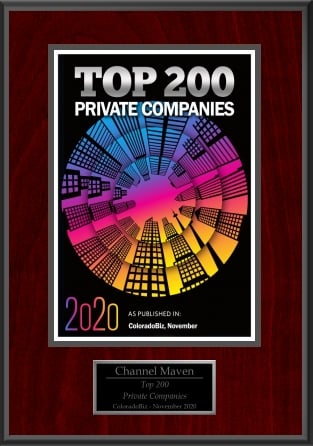Podcasting isn’t some hot new social media trend or expensive, state-of-the-art technology. But we’ve seen podcasting grow and evolve over the years and it’s become obvious that people love podcasts, and they’re not going away anytime soon. In fact in 2019, 32% of Americans listened to podcasts at least once a month, and 22% tuned in weekly. Pretty impressive, right?
When we used to hear about podcasts, it was usually a friend or co-worker explaining what happened on the latest episode of their favorite true crime series, or a famous celebrity chirping juicy gossip. But these days, the podcasting universe has expanded and given businesses an exciting and convenient new way to reach prospects and customers.
Let’s talk about why and how you should incorporate podcasting in your B2B sales and marketing strategy.
The Benefits of Podcasting for Business:
Podcasting is an excellent way to attract a new audience. There are podcasts about every topic under the sun, so they can be an effective way to discuss niche subjects and reach specific audiences. An interesting or entertaining podcast will help you get discovered by people all over the world through popular podcasting libraries like iTunes, Spotify and Soundcloud.
We also know that in today’s bustling digital ecosystem, content that includes video and audio is often more engaging than written articles, and makes it easy for your audience to connect with you on a personal, human level. Plus, podcasts are super convenient. I mean, do the decision makers at your company have time to read every blog post? Your multi-tasking audience can listen whenever and wherever makes the most sense for them.
Of course, at the end of the day the goal of your overarching social selling strategy should be to add value and build trust with your prospects and customers. Podcasting is a lucrative avenue to position yourself as a trusted industry thought leader. Successful business podcasts offer useful tips and insights, include interviews with industry influencers, and proves your knowledge and skills.
How To Get Started:
For starters, it’s important to think through your target audience. Who exactly are you trying to reach? What are their jobs, interests, and what challenges do they face? Determining audience personas will dictate the topics and promotion strategy for your podcast.
Next, think through topics that you know will interest and assist your target audience. How does what you’re talking about compel prospects to learn more about you, your business and your solutions? What value does your podcast add to their lives?
Once you’ve identified your listenership personas and developed topic ideas for them, it’s time to think through logistics. Just like blogs and social media marketing, consistency is key. We suggest using a content marketing calendar to plan your recordings, and collaborate with your podcast guests. It’s also important to have the right equipment. Research popular microphones, podcasting software, and figure out the best place to have guests join you in-person if necessary. You’ll also need to feel confident with your content promotion plan, whether you’re relying solely on podcast libraries or sharing your podcast through social media, your website, or email marketing.
In Summary:
Podcasting for business doesn’t have to take up all your time and budget. It’s a fantastic tool for reaching your audience and building trust in a way that few other forms of content can achieve. And aside from some basic equipment, you only need to invest your time and energy.
If you haven’t already, be sure to check out the Channel Maven Podcast or contact us to learn more about other social selling best practices!

Get practical tips for marketing ”To” and driving demand generation “Through” Channel Partners!
1035 Pearl Street, Suite 329
Boulder, CO 80302
Home | About | Services | eBooks | Blog | Privacy Policy | Cookies Policy